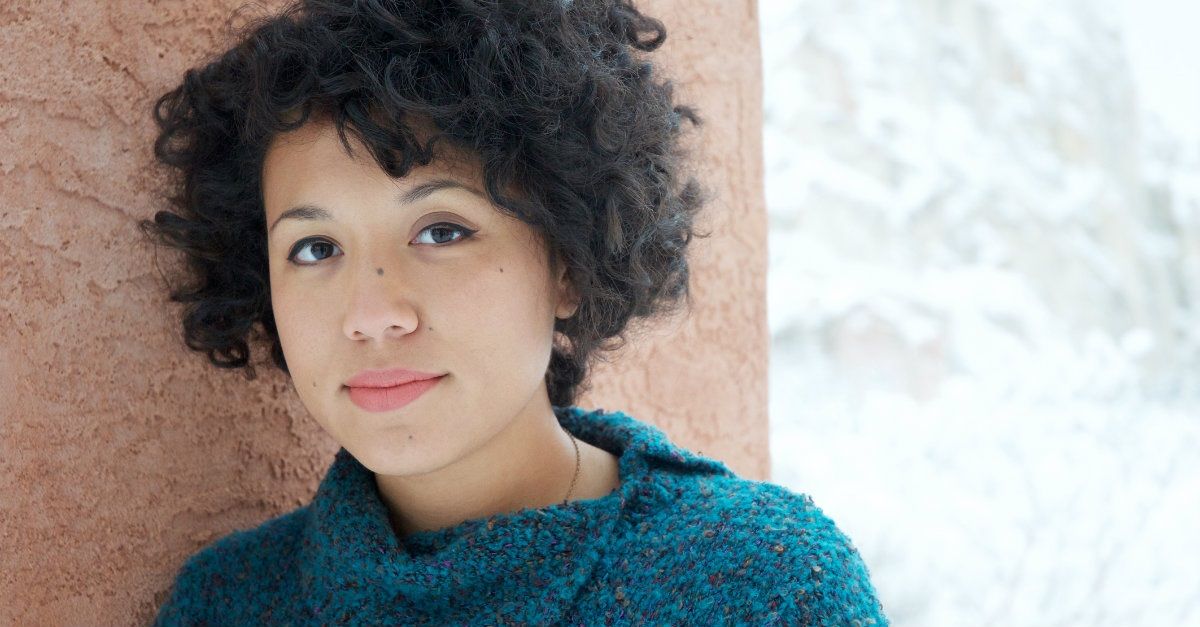
Photo Credit: Thinkstock
My husband and I will be celebrating nine years of marriage this September. In many ways, we still feel like babies in this thing we call “being united in love;” we’re still learning to become one. It has been what seems like both a long and short road to figure out what kind of marriage we have, what works for us, and what hasn’t worked for us.
I grew up hearing from pastors and their wives about the type of man I should look for, the boundaries one should have in dating, and the roles each spouse is supposed to take. I naively thought if we did all we had been taught to do, our marriage would turn out to be just like the ones the pastors and their wives had - a good, biblical marriage.
Instead, ours didn’t turn out to be like theirs at all. My husband was then and still is a chef, and I ended up being a pastor for the first 7 years of our marriage. Along the way, we’ve learned to surrender what we thought we knew about marriage.
If I knew then what I know now, here are 10 things I would’ve told myself about marriage before saying “I do”:
1. The right person isn’t always someone who shares the same passions as you do.

The advice I heard was to find someone who shared the same passion and calling, then pursue it together. I had always wanted to do church ministry, so I assumed I’d marry a pastor. When I started dating my husband, he was starting his culinary career. As our relationship progressed and his passion for cooking stayed the same, I realized it’s rare for a couple to share a calling or passion that lends itself to a shared career. This may happen often in ministry, but husbands and wives can have very different callings and passions and still be able to have a fulfilling, God-glorifying marriage. It isn’t so much what you do together, but who you are becoming in Christ as individuals and as one.
Photo Credit: Thinkstock
2. The ultimate goal of marriage isn’t only about sex.

I was warned against the dangers of sex before marriage. It was likened to fire: don’t get too close, or you’ll get burned. Stay away from it, and you’ll save your soul. The language and tone of the purity culture was negative and threatening, and only being warned against having premarital sex gave me a one-sided view that marriage equaled sex. But marriage is about more than just sex. Having a correct view of sex as a deeply good thing, not as a dirty act of rebellion, can prepare a couple to enjoy sex that unites a husband and wife.
Photo Credit: Thinkstock
3. Complementarianism isn’t the only way or full picture of a biblical marriage.

Complementarianism is the belief that men and women have complementary roles both in marriage and in the church. Complementarianism also sees the role of leadership in both in marriage and the church as the man’s role.
I was taught this was the right and biblical way a marriage should work, and I tried to abide by it, encouraging my husband to lead the family and submitting to his role as the head. But over time, we recognized this wasn’t working for us. We both found ourselves leading the family and submitting to one another in Christ.
This view of marriage, as well as complementarianism, can create healthy, loving marriages. For us, healthy looks like being a team with equal responsibility to lead, serve, and submit.
Photo Credit: Thinkstock
4. Becoming one isn’t about the wedding day.

The wedding day is only the beginning of two becoming one. The process of oneness is a lifelong investment of hard work and grace. It is a constant grinding against one another’s rough edges. At times, it’s painfully sanctifying, yet it leads to depth in understanding one another and experiencing the gospel through forgiveness and grace; resulting in beauty and love. In other words, the reward is Christ. The journey we begin at the altar starts with Christ and ends with Christ.
Photo Credit: Thinkstock
5.Everyone changes.

I heard once that everyone marries three different people in their lifetime. We change so much over the years that it’s as though we recommit ourselves to new people along the way. Our eighth year of marriage was one of the hardest ones so far. In the midst of working through unhealthy patterns of communication, I wondered what had happened to the couple we had once been. We had had so much fun, enjoyed so much lightness in our lives and spirits. We had known each other and loved each other well. But I changed. My passions changed. He changed. Our expectations, responsibilities, and even love languages changed. But we were committed to hope and to each other, and we fought hard for our love. Our marriage is better for it. We’re connecting again, laughing from our bellies, and growing in our understanding of what unity really means.
Photo Credit: Thinkstock
6. Don’t underestimate the worth of counseling.

Counseling isn’t just for times of crises. It’s also a way of prevention acting as a checkup along the way to measure the health of the marriage. A third person who has an objective perspective can help when communication and connection seem difficult or impossible, when life circumstances and stress throw a marriage into crisis, or when the unhealthy patterns of one’s childhood manifests itself in the middle of a marriage. As said in the previous slide, life changes constantly, and counseling can help spouses learn, adjust, and grow from them.
Photo Credit: Thinkstock
7. Don’t underestimate the value of personality tests.

There are so many tests we can take to know our strengths and our weaknesses. Personality and love language tests have not only helped me understand myself but has also helped my husband and me learn more about each other. We learned about the way we’re wired, the way we tend to communicate, and the way we need and express love. Try taking these online tests: MBTI, Enneagram, Love languages.
Photo Credit: Thinkstock
8. Invite others in your marriage journey.

We often talk about the need for community in the church and in our spiritual lives, but it may not often be seen as a need in our marriages. My husband and I started our marriage in a new city with no friends, and we learned the hard way that we needed others who could know us as a couple and invest in our growth. We needed couples who had been married longer and had gone through difficult circumstances together to guide us and give us wisdom along the way. I believe we would have benefited from this kind of investment in the early stages of our marriage, but we are only just now in a place where we’re in community with other couples who are willing to walk this journey with us. It will not always be easy to develop a community, and it will feel vulnerable to share the ugly and messy parts of our lives, but consider community like counseling: a preventative measure to recalibrate ourselves for health and wholeness in our marriages.
Photo Credit: Thinkstock
9. Your spouse won’t complete you.

When I first got married, I would have told you I didn’t believe this statement. I knew it was a fairy tale narrative, yet I still expected my husband to complete me, to know me fully, and to meet all my needs. My actions betrayed my true beliefs, and we both felt disappointment and frustration because of it. I felt dissatisfied and unsure of his love, but I learned that I was expecting too much from my human husband. I was expecting of him what only God can do - love me with perfect, completing, fulfilling love. At every difficult point in our marriage, God reminded me He is the One. He is my true Friend, the patient Groom, and His love is ever faithful, unwavering, and always delighting.
Photo Credit: Thinkstock
10. Marriage is a shadow.

In Ephesians 5:32, Paul says that marriage is a mystery and an illustration of Christ and the church. Marriage can be described in so many ways: wonderful, refining, difficult, and good; but ultimately it’s a shadow of the love and relationship Christ has with the church. It’s a foggy and imperfect visual of the love, sacrifice, and grace He gives. It’s a practice of the gospel lived out day after day. The story of redemption is the best love story ever told, and marriage is just a glimpse into that bigger story He’s been telling since the beginning of time.
Grace P. Cho is a writer, wife, and mama to two littles. She writes and is the managing editor for The Mudroom and GraceTable as well as a contributor for Inheritance Magazine and A Moment to Breathe. Her favorites include walking alongside others via mentoring and editing, speaking truth through story, sharing meals and lives at the table, coffee of any kind, and desert landscapes. You can find Grace on Twitter, Instagram and at www.gracepcho.com.
Photo Credit: Thinkstock